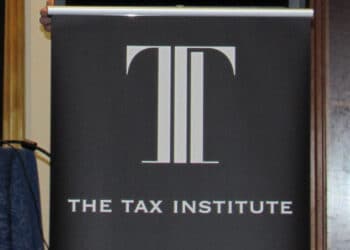Michael Hallinan, special counsel for SUPERCentral, said if a child is under 18 years and working full-time, more than 30 hours per week, their employer must make super guarantee contributions on their behalf and those can also be paid for them into their parents’ SMSF.
“Once that child attains age 18, they can make their own non-concessional contributions, sourced as gifts from their parents, and they are also entitled to receive SG contributions even where they work part-time and even if they earn less than $450 per month,” Hallinan said.
Hallinan said a change in legislation means that employers now need to pay super for their employees who are 18 or more even if they work less than 30 hours in a week.
“This is the result of the $450-per-month minimum threshold for super guarantee payments being removed,” he said.
“These changes again raise the issue of having your children as members of your self-managed super fund.”
He gave an example of Johnny who gets a part-time job at McDonalds, while his sister works some shifts in the family’s small business. They are both under age 18 and neither of them meets the requisite 30-hours per-week test so there are no SG contributions. However, in the school holidays they work over 30 hours in a week.
“The ATO is clear that super is payable in respect of any week where the 30-hour test is met, so now they’ll start to receive annoyingly small amounts of superannuation as the $450-per-month minimum threshold no longer applies,” he said.
“The question then is: who should your child’s super be paid to? It seems that it could be convenient, cost-effective and even parentally-responsible to have that super paid into your existing self-managed super fund.”
Hallinan continued that one of the reasons to make a child a member of an SMSF is that costs can be controlled more carefully and will be shared with the other fund members and be proportional to the size of their account. It will also save administration/investment costs that could impact the child’s small super balance in a public offer fund.
“As a parent or guardian, you have the right to join children up to the fund, whether that is a public-offer fund or an SMSF,” Hallinan said.
“However, they cannot become a director of the corporate trustee before they turn 18. Until then, their parents or guardian will represent them on the board of the corporate trustee.”
Hallinan cautioned, however, that before adding children to an SMSF it is best to check the trust deed and governing rules of the fund.
“If your SMSF’s rules don’t permit child members, arrange with your accountant or fund administrator to have the rules changed,” he added.
With younger members as part of a fund there will also be a need to revise its investment strategy as the investment needs of a young person are very different to those that might apply to their parents.
“When children reach the age of 18 they then have the choice as to where to put their super and can choose to stay in the SMSF or rollover their member benefit to another fund – public offer, industry or another SMSF,” Hallinan said.
“If they choose to remain in the SMSF they will have to become a trustee or a director of the corporate trustee and can no longer rely on their parent or guardian to represent them.”
Furthermore, Hallinan said, once the children do reach the age of 18 there is also a need to safeguard the parents’ interests in the fund against trustee actions brought by the children.
“This is best achieved through fund rules permitting members to vote based on the size of their member balances. As the parents will likely have much more in the fund than the children, the size of the parent’s voting bloc ensures their control,” he said.
“Don’t, however, forget the voting on the board of the corporate trustee and at a shareholders’ meeting of the corporate trustee. The constitution of the company should be amended to ensure the parents’ votes at both types of meetings will ensure control is not lost.”


